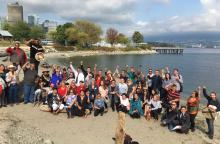As a federal court quashes the controversial project, lawyers and Indigenous leaders agree it’s more clear than ever that Canada must modernize its view of Aboriginal rights
As Grand Chief Stewart Phillip prepared for the Federal Court of Appeal decision on the Trans Mountain pipeline expansion Thursday morning his expectations were low.





